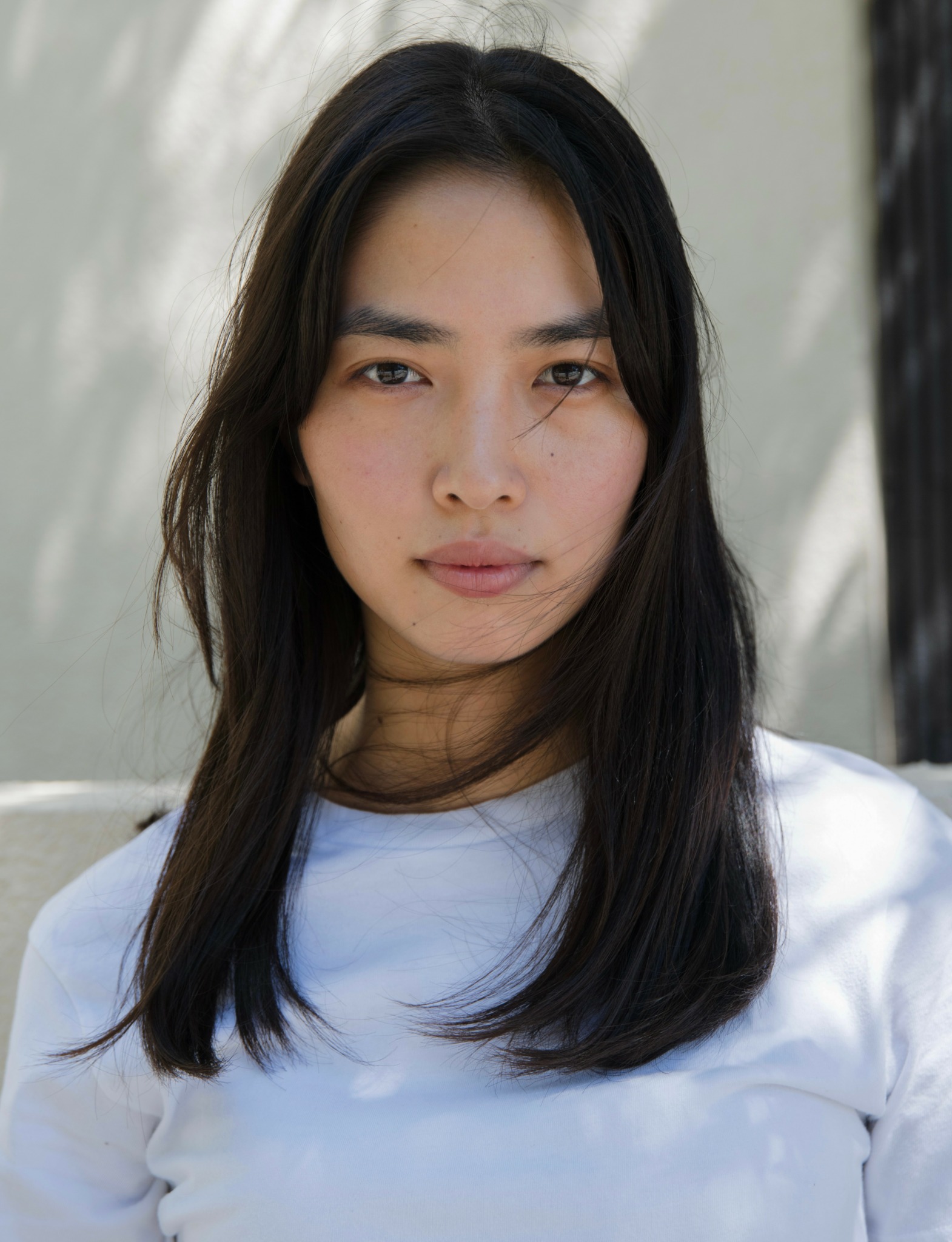We caught up with the brilliant and insightful Naomi Otsuka a few weeks ago and have shared our conversation below.
Naomi , thanks for joining us, excited to have you contributing your stories and insights. What’s been the most meaningful project you’ve worked on?
The most meaningful project I’ve worked on was a play called Iekei, written and directed by Japanese director Shu Matsui, because it made me fall in love with acting. After graduating from college, I went through a period of depression, struggling with mistrust of others due to friendship issues, while also searching for my own form of artistic expression. Amidst these explorations, a pivotal opportunity arose when I was selected to perform on stage for Director Matsui, renowned for his avant-garde, experimental theater productions. The story is set in a pseudo-family training center, where individuals from diverse backgrounds come together, are assigned roles, and learn to communicate and live as a family unit. The center, run by the government, aims to reduce lonely deaths and support those suffering from solitude. My character, Anne, who was abandoned by her father shortly after birth, joins the center, where her biological father is creating a pseudo-family. She strives to convince everyone that genuine relationships are superior to pseudo ones. I felt an intense connection and synchronization between Anne’s experiences and my own life; my trust issues mirrored her frustration with pseudo relationships, making this role an ideal opportunity to explore and understand my inner self more deeply.
Director Matsui has exceptionally innovative approaches to writing and directing in Japan. For example, he allocated the first two weeks of the one-month training to workshops aimed at unraveling the essence of each actor. He asked us about our comforts and discomforts, our favorite spots within the building, and our morning rituals. Throughout the workshops, Matsui seamlessly integrated his evolving vision for the play with our personal insights, resulting in a surprising piece where each character mirrored the intrinsic qualities of the actors. I was profoundly astonished by Matsui’s ability to encapsulate both the innate and acquired traits of the actors in each character, highlighting their unique beauty within a remarkably short timeframe. He utilizes his talent to the fullest in his writing.
One way he experiments with directing is by introducing what he calls a “hole” on the acting stage. This term refers to a surprise or a small unexpected accident, akin to everyday occurrences like sneezing or brief pauses before people react to comments or actions. He aimed to establish a theatre experience that mirrored everyday life, allowing the audience to feel as though they were casually observing a scene at a neighboring table in a restaurant, rather than merely witnessing a polished and completed performance. The director chose me to be the “hole,” in other words, to be a troublemaker on stage. He understood my natural spontaneity and philosophical nature, which I used to express my unfiltered self during the workshop. He gave me empty lines and encouraged me to alter my lines during every training session and performance, bringing a fresh perspective to my character. It was fascinating to observe the varied reactions from the actors I interacted with as I experimented with expressing my fresh feelings in a new way every time. On every performance day, he said, “Don’t improve by accumulating experiences; instead, clear your memories and approach the story world with a fresh mind.” That month of training was a profound experience, deepening my curiosity about human emotions. Acting under Director Matsui was life-changing, inspiring me to pursue the craft more deeply and embark on a lifelong journey of mastery.
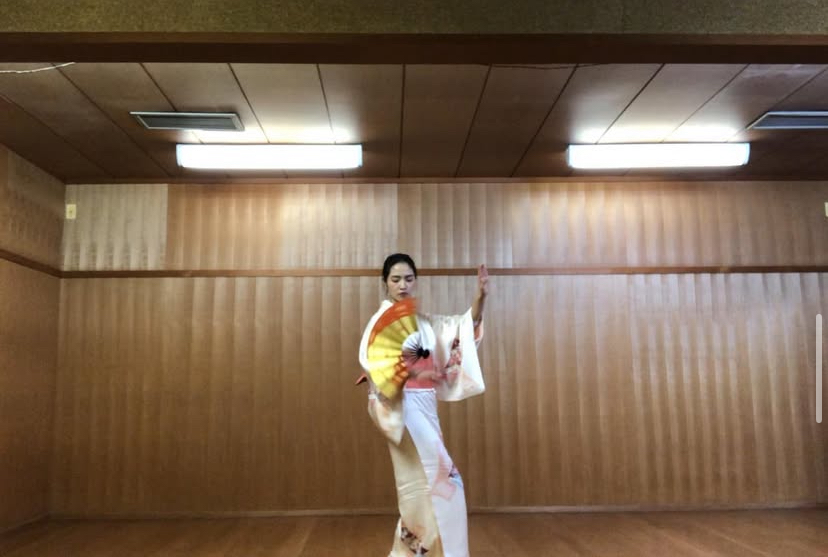
Great, appreciate you sharing that with us. Before we ask you to share more of your insights, can you take a moment to introduce yourself and how you got to where you are today to our readers.
What stirs my curiosity the most in the universe is human emotion. My mentor from university once gifted me a poem by Japanese philosopher Kitaro Nishida, “The bottom of my soul has such depth; Neither joy nor the waves of sorrow can reach it” (1958), remarking that he thinks of me when he reads this. Though the sentiment may sound lofty, it aptly captures my innate disposition. This verse doesn’t imply emotional detachment but rather a fundamental receptivity that embraces and accepts every emotional experience that life possesses without over-emphasizing my personal feelings. I approach each emotional encounter with objectivity, navigating them with a sense of calm and introspection. I believe that every experience provides insights to create harmony within myself and society, deepening my understanding of human hearts and myself. Through this perspective, I’ve learned to create value in both heart-dancing and bright events and heavy and dark moments in life through creating art.
I was searching for my authentic form of artistic expression after studying philosophy in college because I wanted to explore philosophy further through my body and voice, rather than through books in a chair. My fascination with understanding emotions motivated me to explore how they can be verbalized, visualized, and musicalized. To pursue this, I experimented with various forms of artistic expression, including writing poetry and stories, composing music, and painting self-portraits. Through this process and my first theatre project with Director Matsui, I figured out that my true calling has always been acting. Since childhood, I’ve been deeply convinced to channel my unique emotional experiences and sensory memories into acting. I am attracted to acting because the quality of an actor equals the quality of exploring emotions, which is my favorite activity. To me, acting means the discovery of emotions; the audiences witness the discovery and make a similar discovery about themselves. I trained at the Lee Strasberg Theatre and Film Institute and am now a dedicated Method actor. I also write poetry and play because writing has complete freedom to express my originality, discoveries, and views of life, while acting guides me what to explore within limited words.
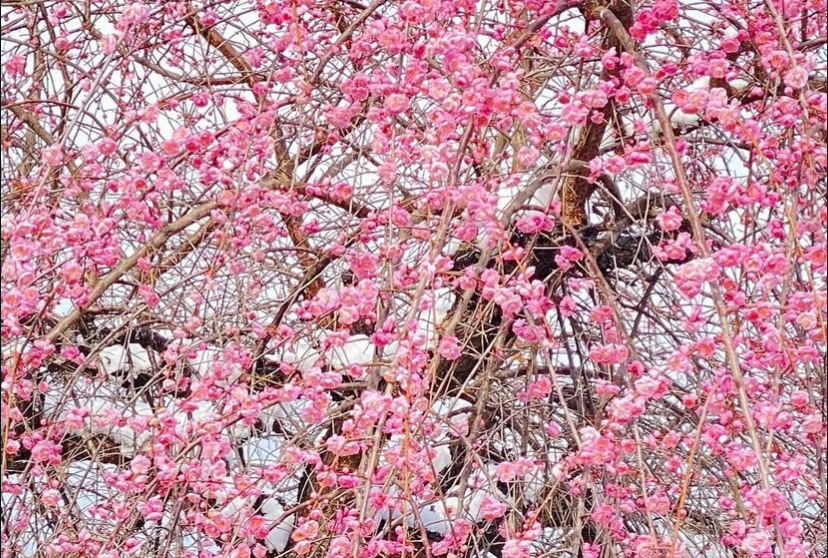
Is there a particular goal or mission driving your creative journey?
My long-term goal is to foster the exchange of diverse cultural aesthetics through my art, believing this can help mitigate conflicts of justice. Such exchange broadens our sensitivity to beauty and cultivates societal acceptance of all its facets. This shared understanding of beauty may be key to deepening empathy and bridging divides created by conflicting views. To pursue this, I will continue exploring how to embody Japanese aesthetics—seeing beauty in imperfection—through acting. For example, this means becoming an actor who plants the seed of compassion. In a scene of hatred, I don’t want to simply hate; I want to battle within myself not to hate anyone, as everyone is worthy of respect. I never want to be a source of division or disunity. This inner conflict adds layers and emotional depth to portraying hatred. As a Japanese actor, I strive to bring unique perspectives on life through my acting.
My mission as an artist is to create a global culture of human revolution, which is inner transformation. Individuals transform inner self, facing issues of life, without blaming their environment but instead taking full responsibility for their lives are truly encouraging. Simply observing their lives empowers me, as their life force helps me recognize that I, too, have unlimited potential within me to become the person I want to be and make the impossible possible. My favorite aspect of acting is that my personal life is fully reflected in what I embody through the craft. I take my human revolution as seriously as my work, and I believe that my own transformation is the way to change society and create peace because it’s contagious. I am determined to become an actor who can inspire and encourage people to be courageous, to step forward boldly to meet life’s challenges, and to confront the negativity within their own lives.

What’s the most rewarding aspect of being a creative in your experience?
My acting teacher once shared three qualities of great actors: not being conscious of what others think, having no boundaries, and being a risk taker. These traits can be problematic in real life, but as an artist, they grant me the freedom to explore every corner of my heart without fear of being wrong or judged. This fearless exploration can empower others to feel less alone and to open their imagination to new possibilities.
The Method has helped me feel freer in this pursuit. Elia Kazan once wrote, “The best and most human parts of me are those that I have inhabited and hidden from the world.” I’ve been working to uncover those hidden parts through writing—especially the aspects of myself I’ve considered ugly or unworthy. Currently, I’m writing a story about a woman torn between different forms of love. She writes letters to three important men in her life and reads them to her doll as part of her self-exploration.
Through this process, I’ve come to recognize my inner self-critic—the voice that tells me not to act “wrong” and reveals how judgmental I can be toward my own honesty. Since acknowledging this, I’ve been working to release that inner critic and continue exploring this part of myself through writing and performance.
Contact Info:
- Instagram: @naomidayo88
- Twitter: @naomiotsuka716
- Youtube: @fishunderanorangetree
- Other: Iekei, Highlight Reel: https://youtu.be/zbS6T1fkRvM?si=mRIJIR2MCmxEFi41
Iekei, Press Conference: https://youtu.be/luLEOCDedRs?si=Gcfrp_yd2jcKRbk0
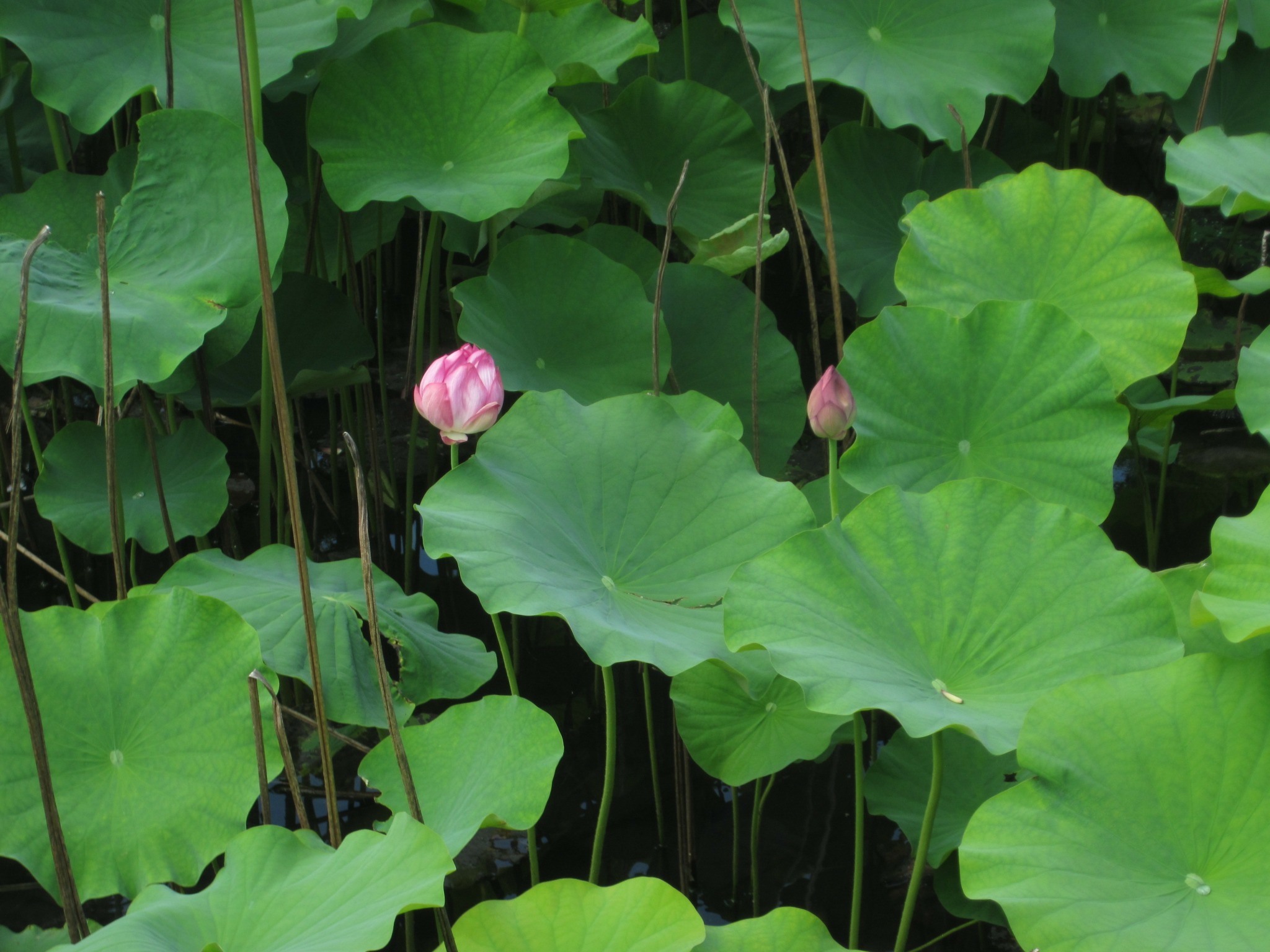
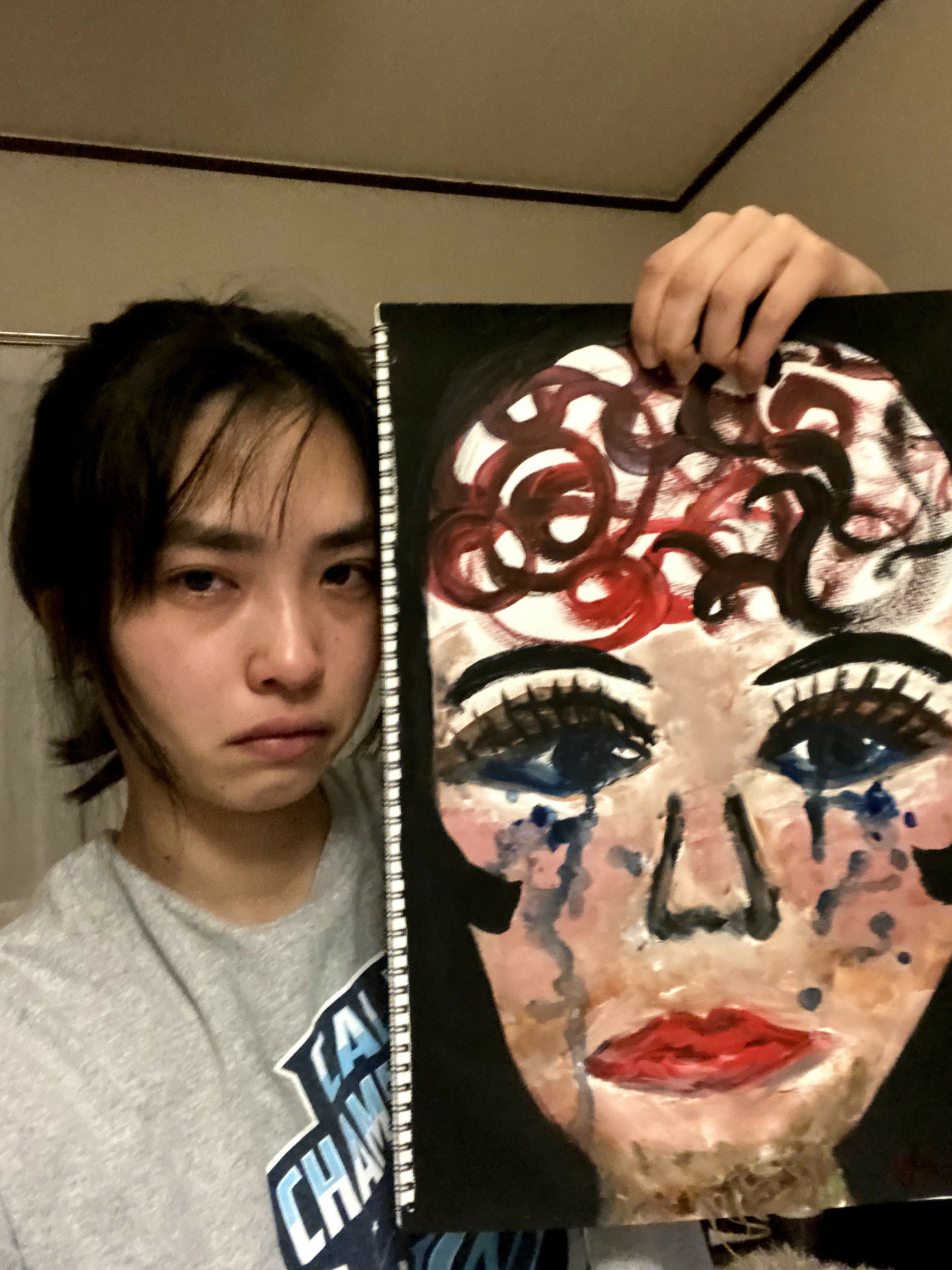
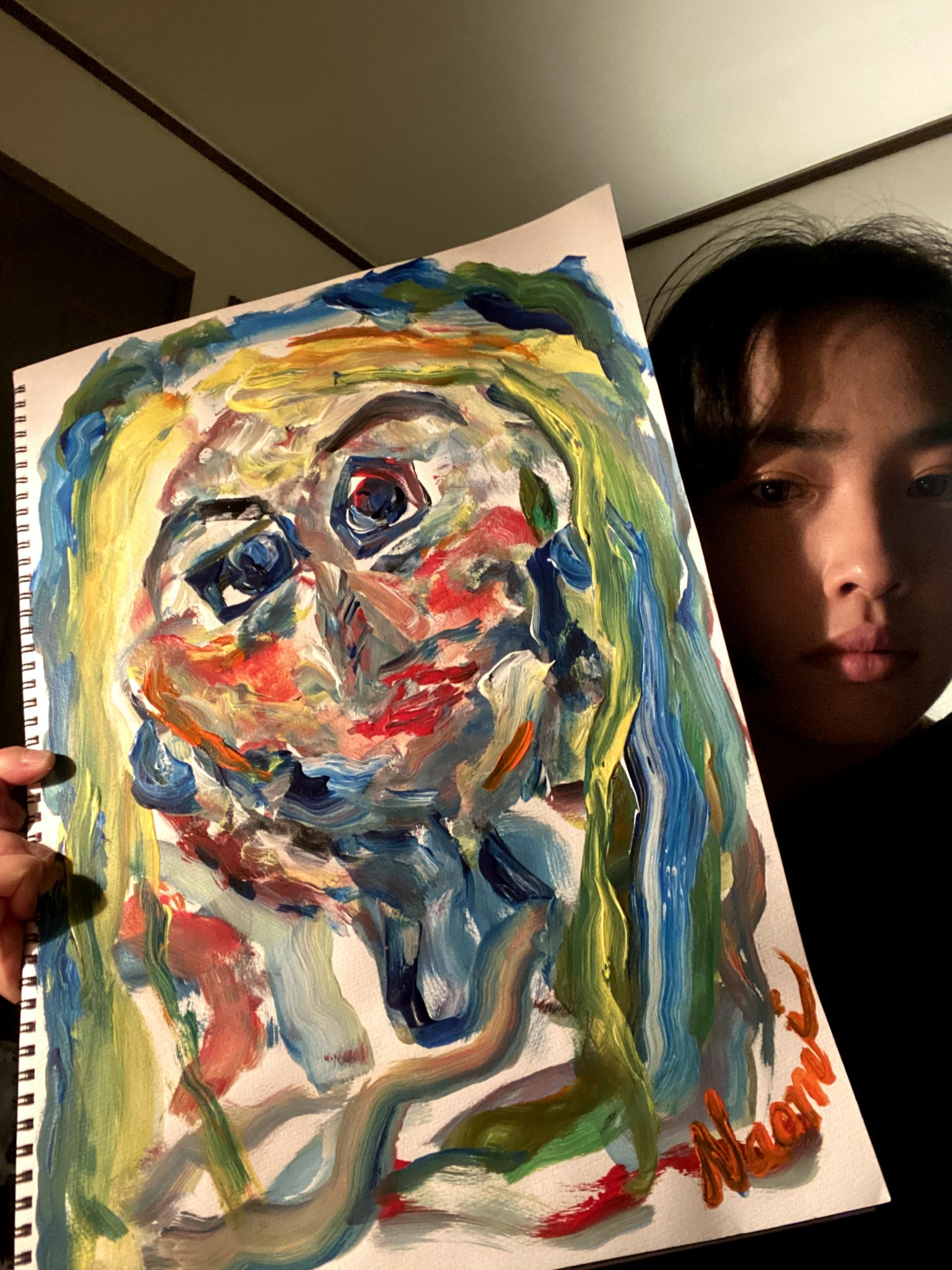
Image Credits
ERI


